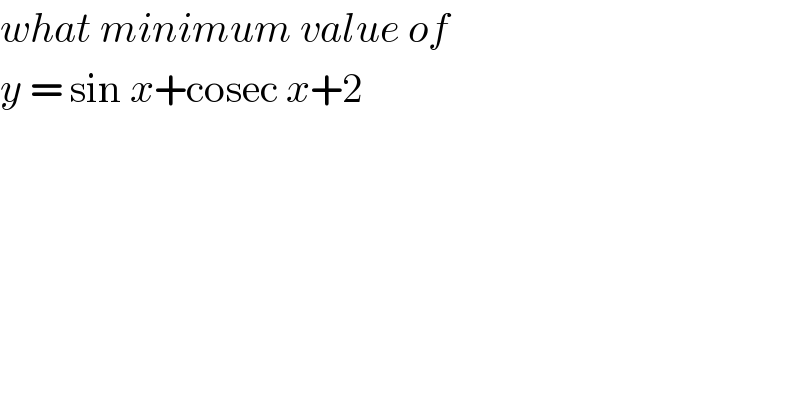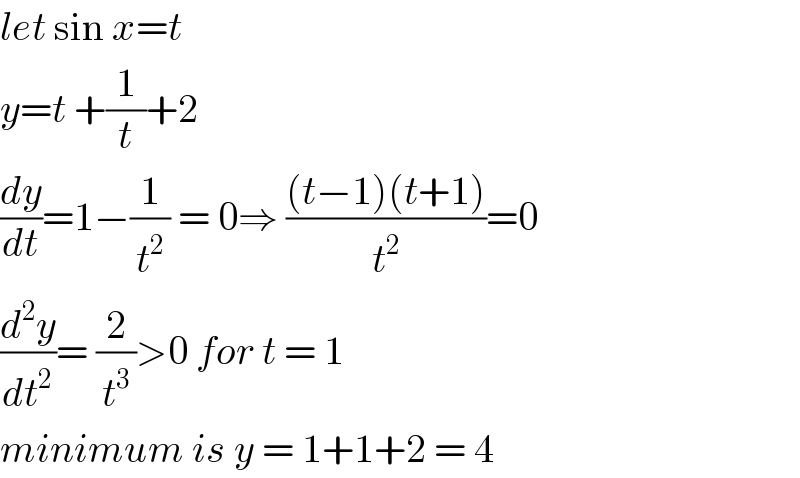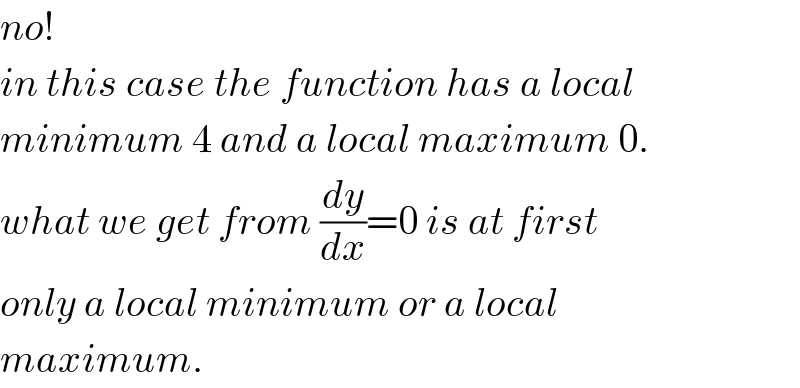
Question and Answers Forum
Question Number 78395 by john santu last updated on 17/Jan/20

Commented by jagoll last updated on 17/Jan/20

Commented by mr W last updated on 17/Jan/20
![no maximum and no minimum sir! example: x→0^+ : y→+∞ x→0^− : y→−∞ in fact: y∈[4,+∞)∧(−∞,0]](Q78403.png)
Commented by john santu last updated on 17/Jan/20

Commented by john santu last updated on 17/Jan/20

Commented by mr W last updated on 17/Jan/20

Commented by john santu last updated on 17/Jan/20

